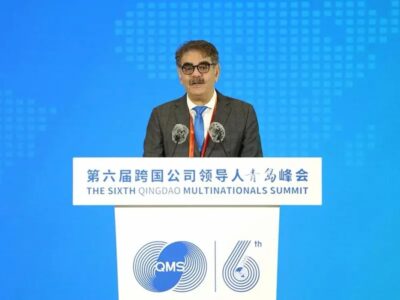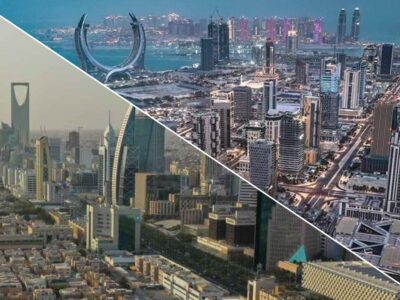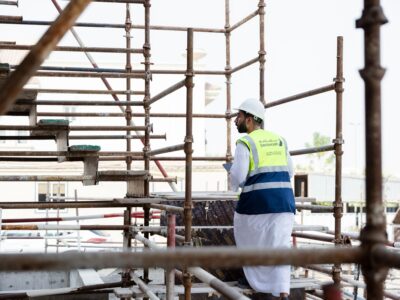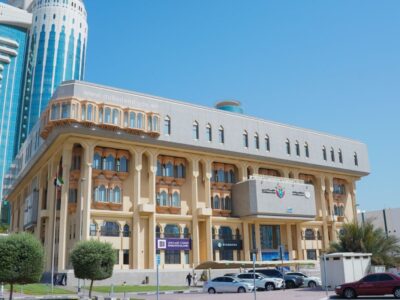Global exports are expected to double from $17.4 trillion to $29.7 trillion over the next decade. Out of the 13 markets that will drive much of this growth, Saudi Arabia will be a key driver of global trade, with its exports projected to grow at an average annual rate of 7.6 percent to reach $354 billion by 2030, according to the Future of Trade 2030: Trends and markets to watch research released by Standard Chartered.
The research found that 18 percent of global corporates currently do or plan to source in Saudi Arabia within the next five to 10 years. This is evidence that Saudi Arabia will be a major driver of global trade growth over the next decade.
Meanwhile, Mainland China and South Korea will continue to be among the largest export corridors for Saudi Arabia, accounting for 20 percent and 8 percent of total exports in 2030, respectively.
India is the fastest growing export corridor for Saudi Arabia with an average annual growth rate of 10.9 percent from 2020 to 2030.
The report, commissioned by Standard Chartered and prepared by PwC, is based on an analysis of historical trade data and projections until 2030, as well as insights from a survey of more than 500 C-suite and senior leaders in global companies.
Future global trade growth sectors
Saudi Arabia is reducing its dependence on the petroleum sector and pushing for industry diversification to boost economic growth and attract foreign investments.
The following sectors in Saudi Arabia are expected to dominate exports in 2030:
| Sector | Share of exports (2030) | 2020-2030 CAGR |
| Metals & minerals | 80% | 8.5% |
| Plastic & rubbers | 7% | 8.4% |
| Chemicals & pharmaceuticals | 6% | 6% |
Global trade will be reshaped by five key trends: the wider adoption of sustainable and fair-trade practices; a push for more inclusive participation; greater risk diversification; more digitisation and a rebalancing towards high-growth emerging markets.
Almost 90 percent of the corporate leaders surveyed agreed that these trends will shape the future of trade and will form part of their five to 10-year cross-border expansion strategies.
Globalisation will drive the next decade of growth. Despite the recent push towards onshoring, growth corridors of the future will not just be intraregional – they will be global spanning Africa-East Asia; ASEAN-South Asia; East Asia-Europe; East Asia- Middle East; East Asia-Europe; South Asia-US.
Asia, Africa and the Middle East will see a ramp-up in investment flows, with 82 percent of respondents saying they are considering new production locations in these regions in the next five to 10 years, supporting the trend towards rebalancing to emerging markets and greater risk diversification of supply chains.
Enabling sustainable supply chains
The research found a significant trend towards the adoption of sustainable trade practices in response to climate concerns and a rising wave of conscious consumerism.
However, while almost 90 percent of corporate leaders acknowledged the need to implement these practices across their supply chains, only 34 percent ranked it as a ‘top three’ priority for execution over the next five to 10 years.
Standard Chartered, in line with its commitment to help make global trade more sustainable and drive the transition to Net Zero, launched a Sustainable Trade Finance proposition to enable companies to build more sustainable and resilient supply chains.
In addition, we offer a suite of sustainable finance solutions to channel capital towards helping companies achieve their Net Zero goals.

The CEO of Standard Chartered Bank Saudi Arabia, Yazaid Al Salloom, said, “In Saudi Arabia, diversification of export sectors away from oil will be the key driver of its trade performance in the next decade. There is a high-potential opportunity for cross-border growth particularly in India, Mainland China, and South Korea, which are predicted to be the key trade corridors for the nation.
“Furthermore, sustainability is at the forefront of the nation’s economic transformation, and we expect to see a shift towards adopting more inclusive, sustainable and fair-trade practices that will result in positive environmental and social impact. Against this backdrop, at Standard Chartered, we are continuing to develop and enhance our sustainable finance solutions to help businesses build future ready supply chains.”







